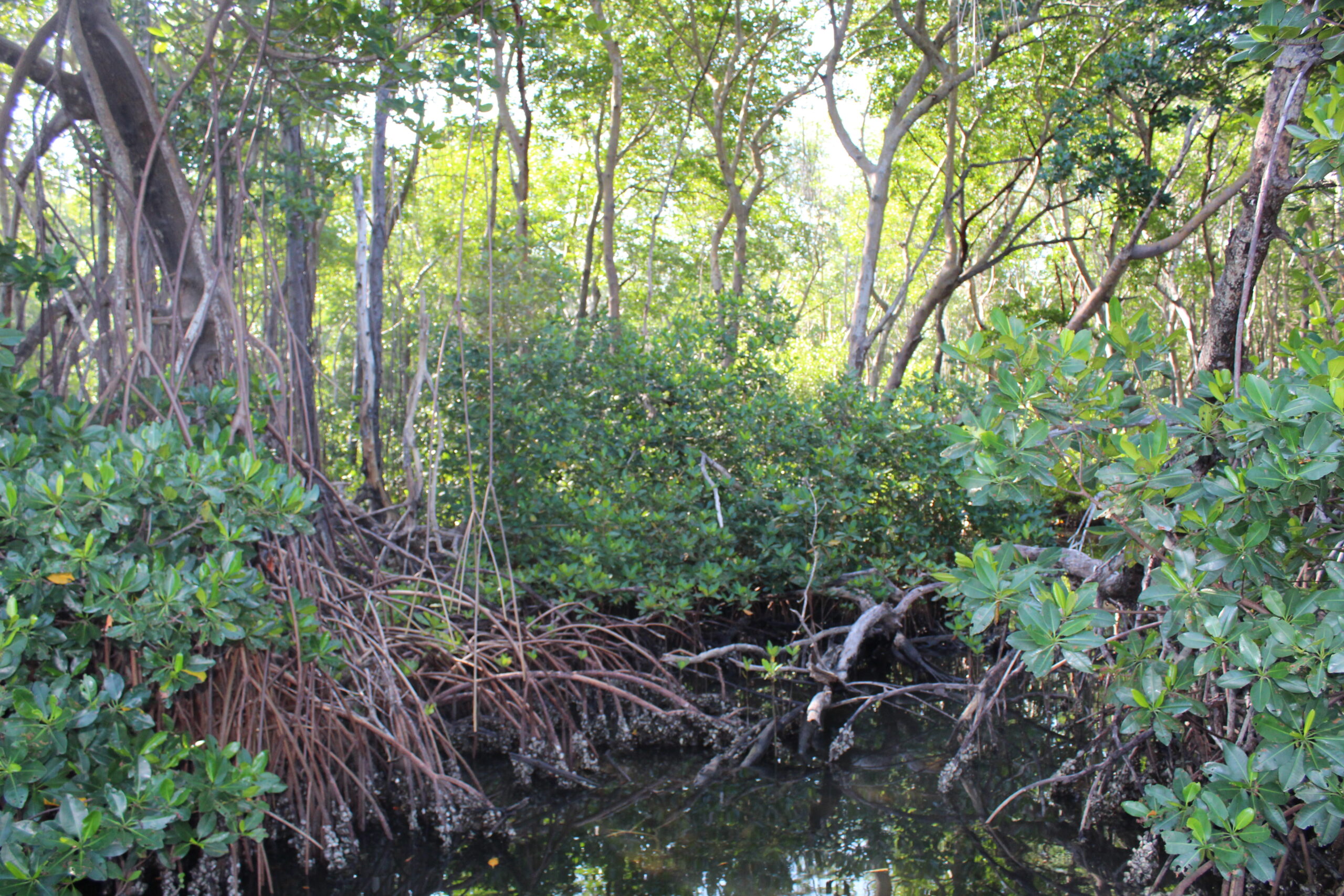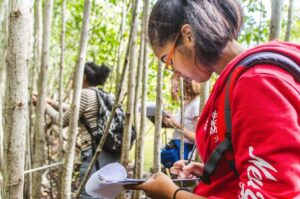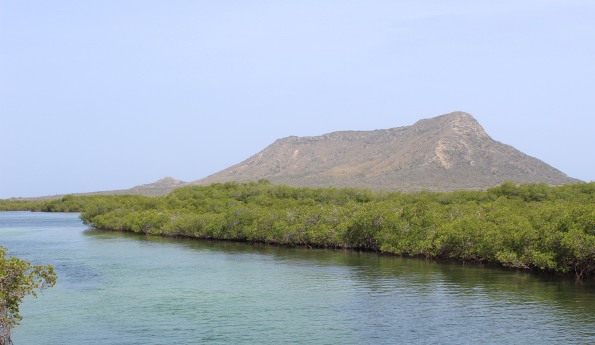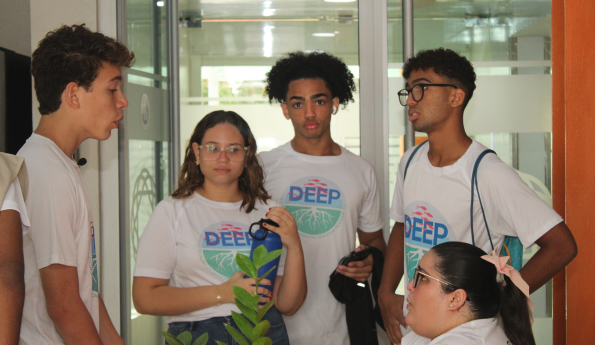Stewardship of its rich natural resources is central to the future of the Dominican Republic, both to protect its biodiversity and to ensure economic growth. Since 2004, Counterpart has worked in partnership with local organizations to advocate for biodiversity conservation and act on climate change. Two noteworthy programs are currently underway: the Integrated Marine Ecosystem Management Project in Northern Hispaniola (IMEM) and the Coastal Climate Resilience Program. Both focus on strengthening climate resilience and management of coastal resources by working in tandem with the local community.

Mangroves capture carbon dioxide from the atmosphere, making them valuable tools in the fight against climate change.
According to Marlig D. Peréz, Counterpart’s program director, “We’ve created synergies with local partners resulting in a lasting impact on the communities, in terms of conservation actions as well as integrated management of local natural resources and human capabilities.”
The USAID-funded IMEM project seeks to preserve biodiversity and promote the livelihood of farmers and fishermen by improving ecosystem management in marine protected areas in the DR and Haiti and expand sustainable practices in farming and fishing. The project initially conducted a survey to understand how Haitian fishermen view the natural resources around them and the management of ecosystems. Another study evaluated how the coral reef off the northern border of Hispaniola compares to other reefs in the Caribbean. The project used these studies to inform its work. Last year, its fishing program resulted in the sale of $33,000 responsibly caught fish and seafood to local buyers.

The Coastal Climate Resiliency Program brings together science, education, community development and youth empowerment.
The Coastal Climate Resiliency Program, funded by the Frohring Foundation, strengthens the resiliency of coastal communities through integrated strategies at the intersection of education, science, community development, and youth empowerment. Working with local and international partners, the program seeks to improve the livelihood of coastal populations while restoring and enhancing marine ecosystems. The goal is to reduce pressures on biodiversity while minimizing economic and cultural disruption to the communities that depend on those ecosystems. Another important element of the project is environmental education through research and citizen science. It assists in creating environmental awareness among young Dominican students, inspiring them in science and guiding them into a sustainable lifestyle regardless of their career paths. The program supports the development of the government’s capacity and provides technical support, particularly in blue carbon sequestration.
Among its accomplishments is an internship program for young agronomists with AgroFrontera and a learning center supported by Punta Cana Foundation that carries out projects with students and universities and supports the conservation of the Ridgway Hawk, among other environmental initiatives.
Counterpart CEO Ann Hudock, who visited the projects recently, observed, “We know that sustainable solutions are the ones carried out in partnership with local communities. The work in the Dominican Republic is a stellar example of how we fulfill our mission to support our partners in shaping their own destinies.”
Read more: https://www.counterpart.org/stories/dominican-republic-isnt-coasting-through-climate-plans/




